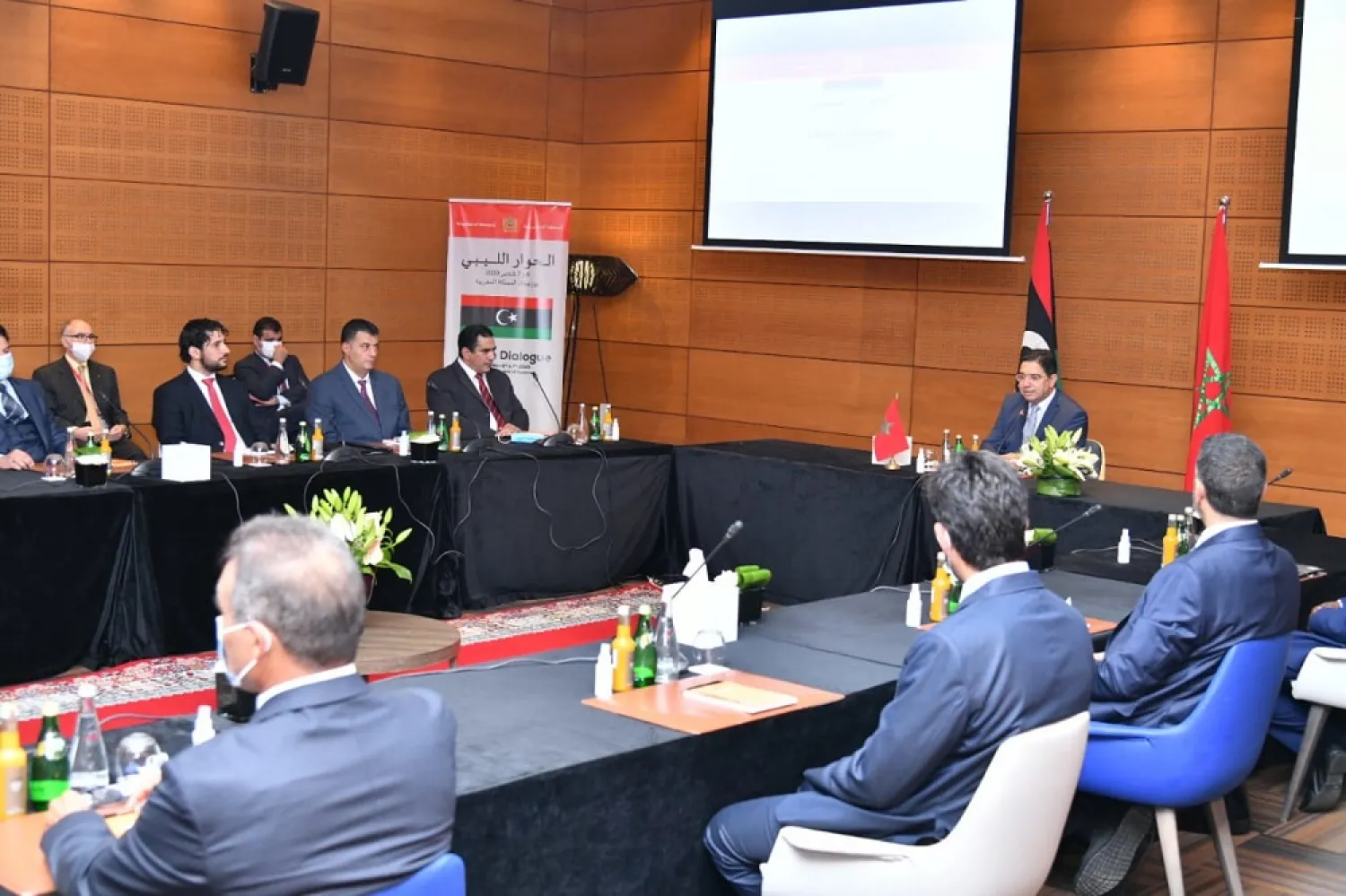Moroccan Foreign Minister Nasser Bourita called on Sunday on the warring parties in Libya to resolve their country’s crisis away from the mentality of “victor and vanquished.”
They should steer clear from the mentality that one party defeated the other, he said during a meeting of delegations from the High Council of State and east-based parliament in Bouznika south of Rabat.
The talks are aimed at cementing a recent ceasefire in Libya and paving the way for negotiations to resolve disputes between the rivals. The meeting was held weeks after a visit by High Council of State chief Khalid al-Mishri and east-based parliament Speaker Aguila Saleh to Morocco. The talks are set to resume on Monday.
Informed sources told Asharq Al-Awsat that Sunday’s talks focused on restructuring institutions, especially the Tripoli-based Presidential Council and reducing the number of its members.
The Skhirat agreement, which was signed in Morocco in 2015, stipulated that the council be formed of nine members. Four had previously resigned from the body. It appears that efforts are focusing on dropping the numbers to three whereby each member would represent one of Libya’s three main regions: Tripoli, Barqa and Fezzan.
The dispute remains over who will head the council. Speculation has been rife that Saleh will assume the presidency, but the question remains over whether its current chief, Fayez al-Sarraj, also head of the Government of National Accord (GNA), would cede the post.
The second focus of Sunday’s talks was the position of prime minister. Mohammed Moaz El-Kikhia is seen as a favorite for the position. He is the brother of former Foreign Minister Mansour Rashid El-Kikhia, who was kidnapped and killed by late ruler Moammar al-Gaddafi.
Mohammed Moaz El-Kikhia is, however, facing stiff competition from GNA Interior Minister Fathi Bashagha.
The Bouznika meeting also tackled the restructuring of institutions that were formed as a result of the Skhirat deal.
Morocco is focusing on finding a political solution to the Libyan crisis after the people had grown exhausted by war. It is hoping that the Libyan parties themselves would come up with the peaceful solution, away from foreign meddling.









